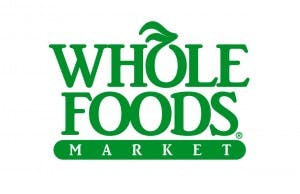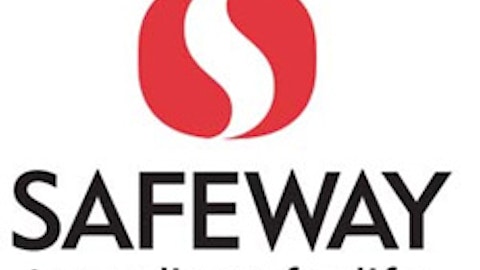
Animals prefer organic
The majority of people polled stated health reasons and support for local farmers. The preference for organic food is not just limited to humans. Animals have a natural instinct for what is healthy and what is not. Monkeys at the Copenhagen Zoo routinely select organic fruits over non organic fruits as stated by the Organic Consumers Association. Apes will regularly eat organic bananas while rejecting regular bananas.
The Institute of Science in Society (ISIS) conducted a study in 2012 focusing on the GM maize Chardon LL, engineered to tolerate the herbicide glufosinate. Chardon LL is intended for cattle feed. The report stated the mortality rate was twice as high among chickens eating the GM maize compared to non GM maize.
A third study in November 2000 issued by the now defunct Ministry of Agriculture in the U.K. noted that grazing cows would only eat non GM maize in the fields.
This article is not about extolling the intelligence of animals eating habits over human beings. What this article intends to do is acknowledge there is a general preference towards the natural over the hybridization and artificiality of seeds and food.
Profit and eat healthy
Europeans are the most knowledgeable when it comes to the food they put on their plates. Americans are also becoming more conscious, specifically the middle and upper classes. Middle class mothers are the vanguard for eating responsibly. Lets face it, American women usually control the family budget. Mothers and wives do the grocery shopping the majority of the time. The spending power of this demographic is driving retailers and corporations to cater to organic food sold in retail locations.
Organic food industry will explode
The largest organic food company right now is Whole Foods Market, Inc. (NASDAQ:WFM). They employ 53,100 employees. This is a company that owns and operates a chain of natural and organic food supermarkets in Canada and the U.S. This natural food grocer offers the highest quality meat, poultry, seafood, baked goods, and ready to eat foods. I personally eat at the Whole Foods Market, Inc. (NASDAQ:WFM) in downtown Seattle after purchasing groceries.
This company is on a roll as more and more people transition to a healthier diet. John Mackey, the CEO, founded this company in Austin, Texas with three other business people who had the foresight to see the future of healthy eating when they opened in 1980 with 19 employees. Workers are given incentive as stock holders in the company, and this adds a level of service and professionalism unparalleled elsewhere.
Whole Foods Market, Inc. (NASDAQ:WFM) is growing organically (please pardon the pun). The goal of this company is to expand from 300 stores in the U.S. to 1,000 stores. The Co-CEO, Walter Robb, made this statement regarding his companies growth prospects in 2011.
U.S. organic food sales increased from $1 billion in 1990 to $26.7 billion in 2010 this statistic provided by the Organic Trade Association (OTA). Canada’s organic market expanded to $3.7 billion in 2012. In addition, sales of non alcoholic beverages reached $3 billion. The agricultural food sector is set to explode.
The Hain Celestial Group, Inc. (NASDAQ:HAIN) is a New York-based company worth noting. The Hain Celestial Group, Inc. (NASDAQ:HAIN) currently features twenty major organic brands. Whole Foods Market, Inc. (NASDAQ:WFM) is one company that sells Hain’s products extensively in their stores. Ready made meals for health and time conscious consumers is one of The Hain Celestial Group, Inc. (NASDAQ:HAIN)’s primary goals. Eating healthy while not sacrificing time is a major selling point for consumers.
Last year, The Hain Celestial Group, Inc. (NASDAQ:HAIN) acquired Cully & Sully, an Irish company that sells soup and pies ready made. Cully & Sully will now have access to the U.S. market to sell ready made soups and pies. Premier Foods, the U.K. manufacturing company, was also purchased last year in October. Hain is well on its way to international recognition in the organic food market.

Comparing Whole Foods to Safeway Inc. (NYSE:SWY) is the difference between generic art and exclusive artwork. Safeway Inc. (NYSE:SWY)’s market cap is $6.23 billion compared to Whole Foods Market, Inc. (NASDAQ:WFM)’ $15.89 billion. Safeway Inc. (NYSE:SWY) has even begun to sell organic food products to compete with natural food grocers.
Safeway is the dominant grocer in the U.S. and Canada, operating 1,675 stores. Easily recognizable to any consumer, Safeway is the standard for grocers. They are now on a mission to differentiate themselves from their current image by incorporating their Lifestyle Stores and catering to natural food and organic consumers. It seems their marketing team is learning from competitors.
Consumers have the power
The bottom line is that people want to look and feel healthy. Health is a result of what you drink and eat. The more educated you become about food and health, you probably will not revert to past eating habits. Consumers dictate what they want by what they spend their money on. The more people transition to natural food, the more corporate farms will have to grow unaltered food staples if they do not want to lose their position in the market.
The article Eating Organic Is Profitable originally appeared on Fool.com and is written by Robert Palmer.
Copyright © 1995 – 2013 The Motley Fool, LLC. All rights reserved. The Motley Fool has a disclosure policy.

